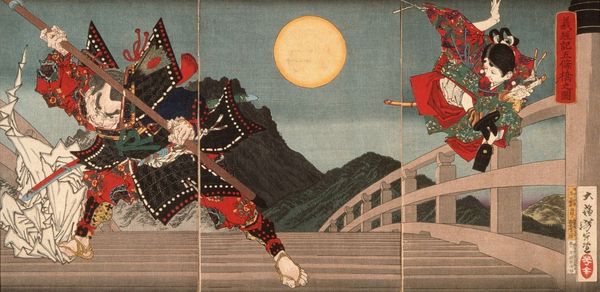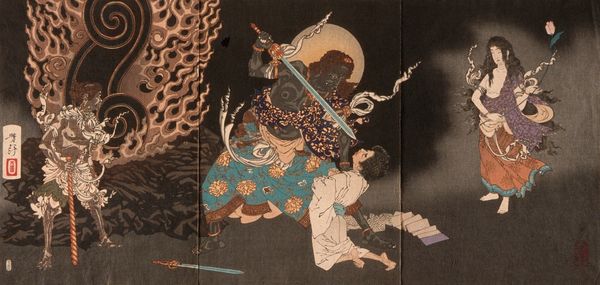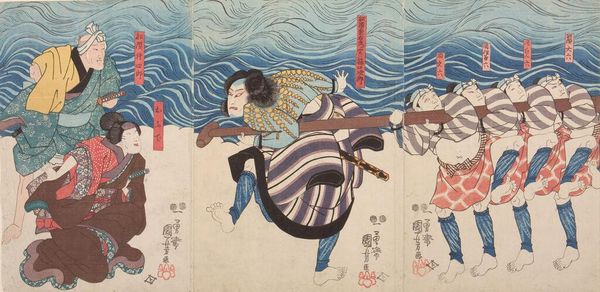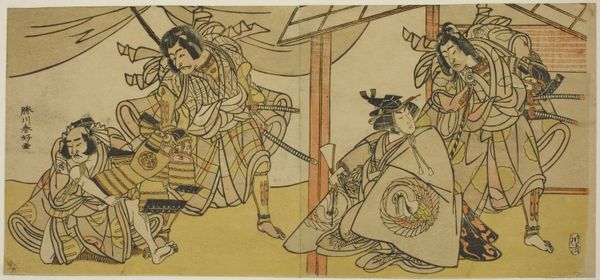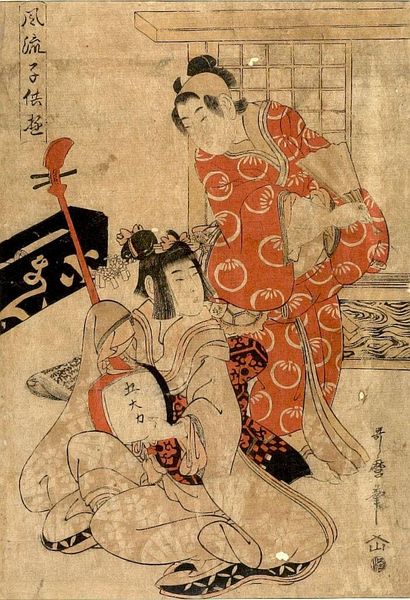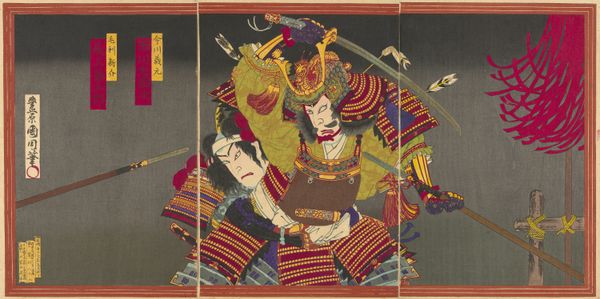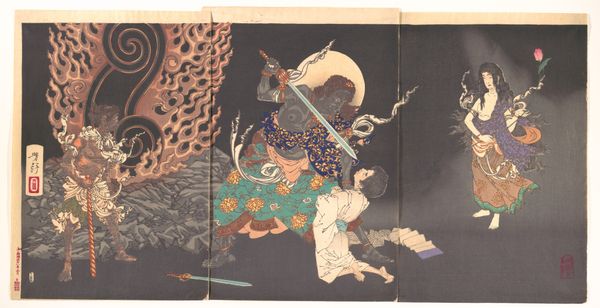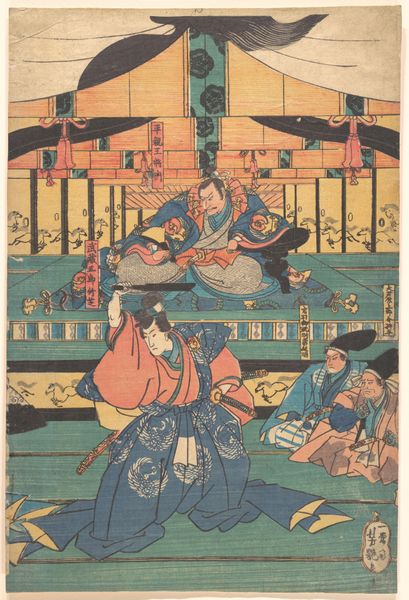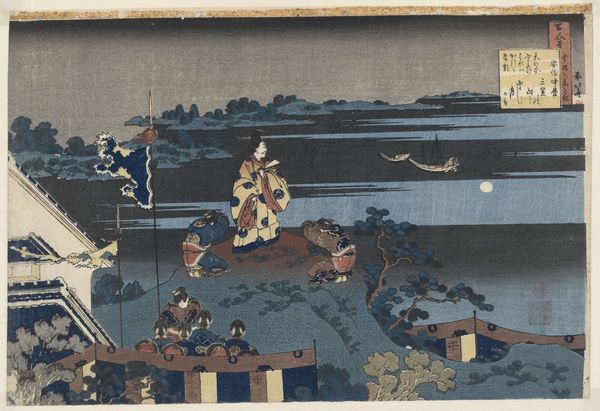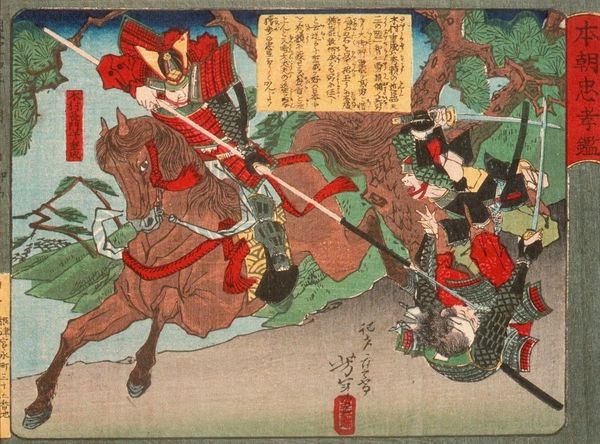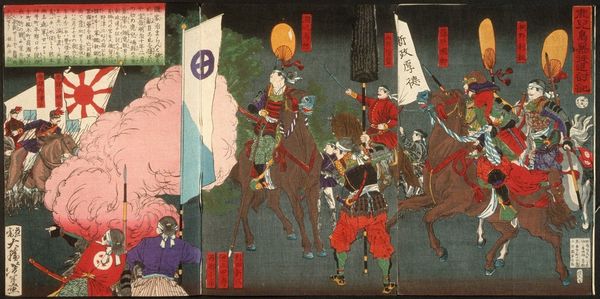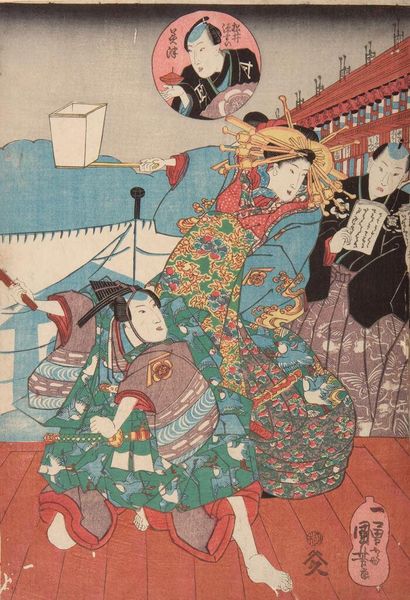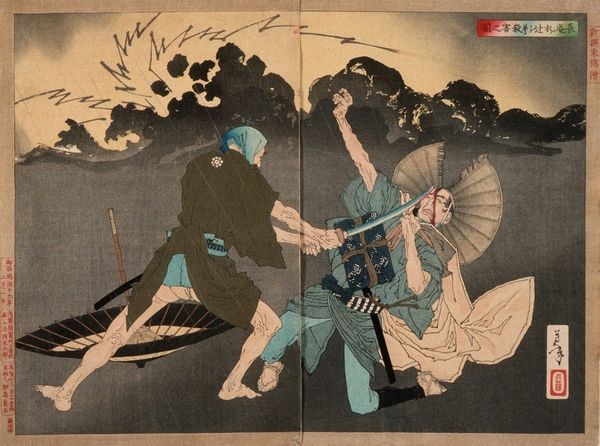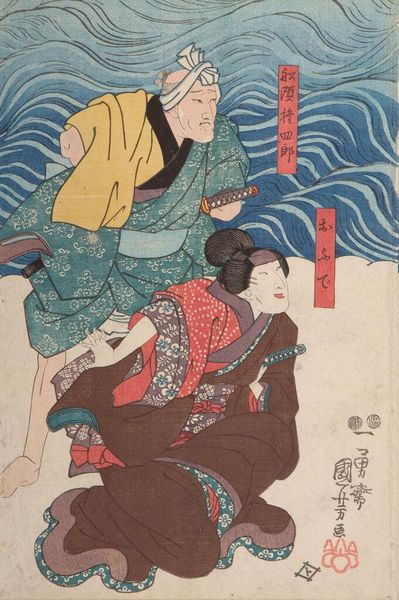
print, woodblock-print
#
narrative-art
# print
#
asian-art
#
ukiyo-e
#
figuration
#
woodblock-print
#
history-painting
#
mixed media
Copyright: Public Domain: Artvee
Curator: This woodblock print by Tsukioka Yoshitoshi, dating from 1852, is titled "Lord Mashiba Subjugates Korea." It depicts a dynamic scene of conflict. Editor: My initial impression is that there's a deliberate theatricality at play, almost operatic in its heightened gestures and stylized combat. The artist’s hand seems remarkably controlled, even economical. Curator: The composition certainly compels attention. Notice the bold diagonal lines created by the swords, effectively dividing the picture plane and creating a sense of immediate action. The intricate details of the warriors' clothing serve to create dynamism throughout the composition. Editor: Let's not overlook the labour involved in the creation of ukiyo-e prints like this one. From the initial carving of the woodblocks to the painstaking application of layers of pigment and color to the paper. Who were these artisans and how much creative license did they have over the final design? Curator: It is fascinating to consider the artisan contribution. Focusing solely on the artistic language, Yoshitoshi cleverly contrasts light and dark in the clothing of his figures, highlighting their tense facial expressions. Editor: Absolutely. Considering that woodblock printing necessitates a collaborative, almost industrial, process—with skilled laborers executing designs conceived elsewhere—we might want to question this emphasis on individual “artistic language.” Who decided on these patterns and colours? Curator: Valid points to consider. The thematic significance of the title, of course, directs our analysis towards a commentary on political power and historical events. "Lord Mashiba Subjugates Korea", which creates the print's narrative power, adds significant texture to our viewing experience. Editor: And the history is, to be frank, complex and tied up with colonial ambition, so we would need to reflect that reality within a discussion about “narrative power,” lest we reinforce outdated nationalist agendas. It would be interesting to explore this imagery in relationship to contemporary culture and how meaning continues to change. Curator: True, our analysis is not, and should not be, static. I appreciate you sharing the material and contextual elements of "Lord Mashiba Subjugates Korea". It certainly gives one much to consider when observing. Editor: Yes, an acknowledgement of all involved enables us to reconsider historical narratives, ensuring that what we understand today becomes more nuanced and, ideally, closer to an equitable understanding of the past.
Comments
No comments
Be the first to comment and join the conversation on the ultimate creative platform.
